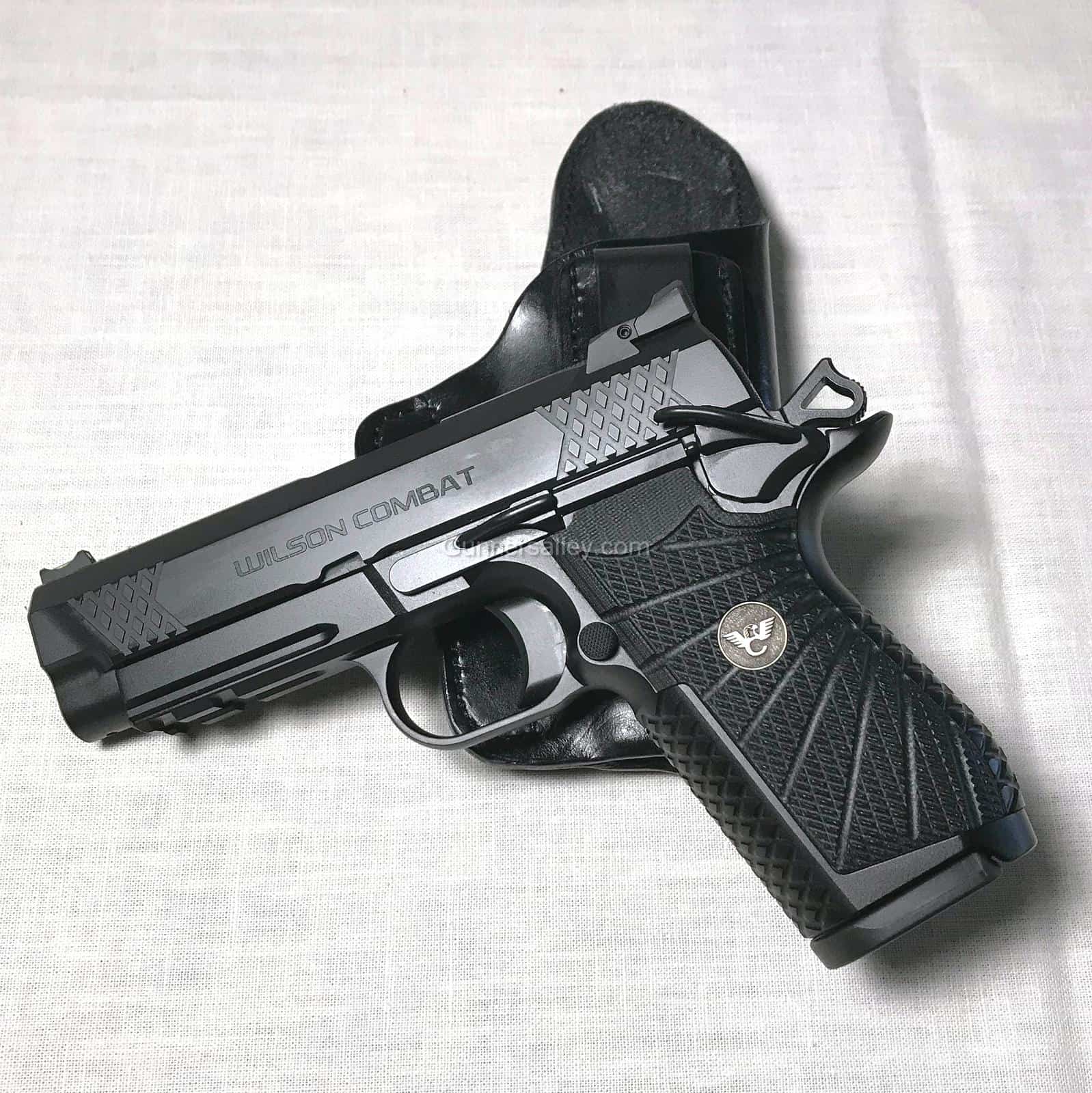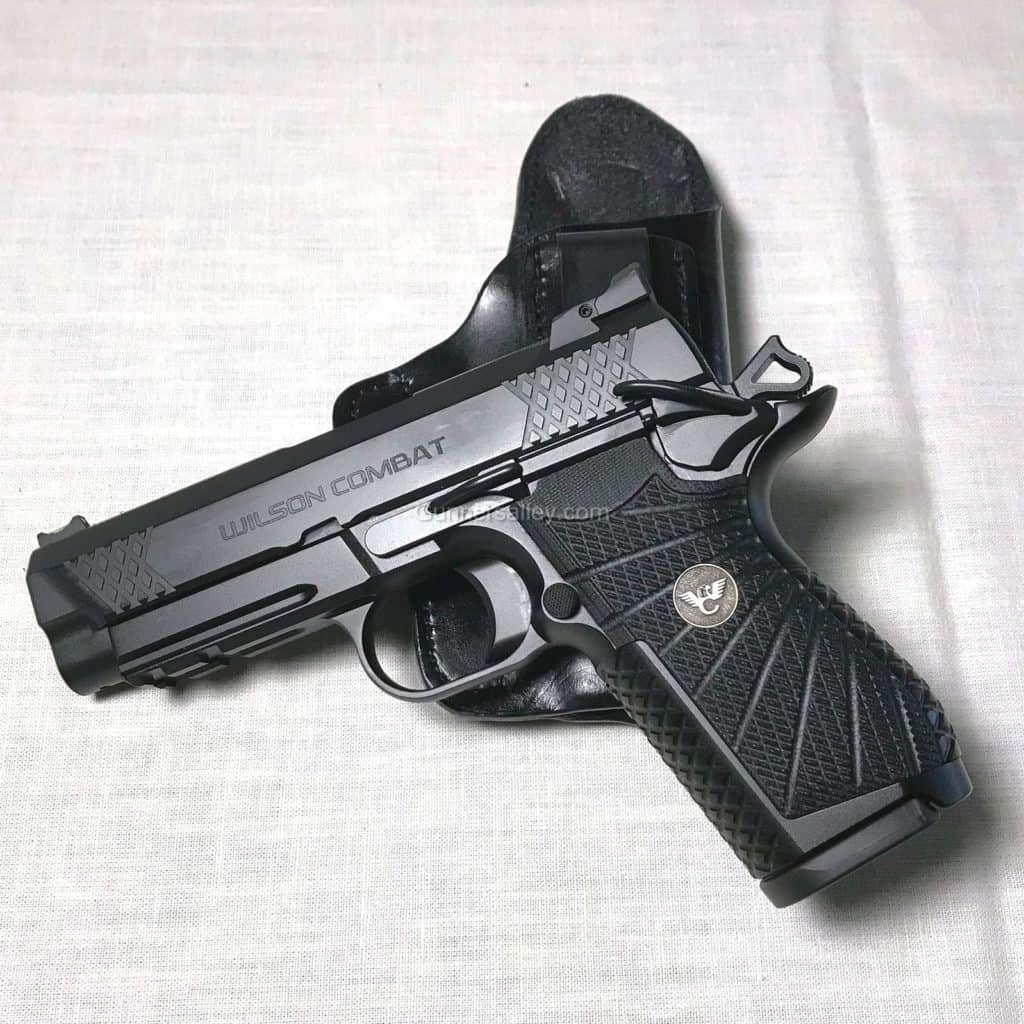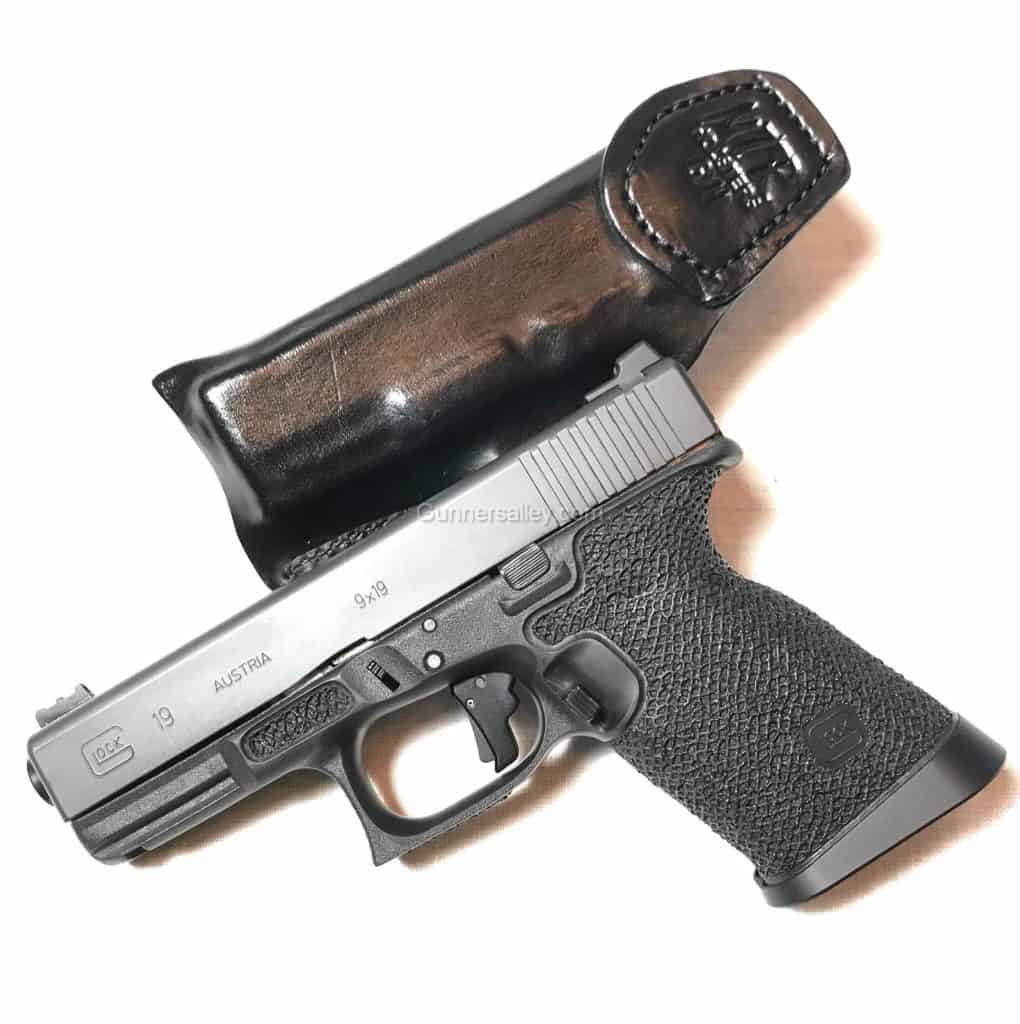If you read some of the more popular concealed carry blogs or forums, you’ll eventually come across a topic of discussion regarding whether or not to carry an “expensive” handgun for CCW. It’s an interesting topic for discussion, so let’s dive a little bit deeper into it.
To begin with, the fundamental description of “expensive” is open to interpretation. Everyone has their own definition of what constitutes “expensive.” If you are financially well-off, your definition of expensive may be different from mine and different from someone else’s. For the sake of this article, let’s say expensive means any handgun that costs more than $1000.
When people discuss why they won’t carry, don’t carry, or don’t advocate carrying an expensive handgun for CCW, here are the two most common reasons given:
#1 – The Weapon Will Be Seized
The prevailing opinion is that should you have to use an “expensive” handgun for self-defense, it will be seized by law enforcement for evidence, and probably won’t be returned to the owner in good condition. In some cases, it may not be returned at all or may mysteriously get “lost” in evidence.
My thoughts: I really can’t argue this point. If you use the handgun in self-defense, it most likely will be seized and treated as evidence until the case is resolved, and you may not get it back in good condition.
However, the seizure theory isn’t limited to CCW handguns. The same can be said for almost any firearm that is involved in a self-defense shooting or even an accidental discharge where someone is injured.
For example, if you have an accidental discharge at the shooting range with your favorite AR and wound a shooting buddy, your AR could, theoretically, be seized during the investigation of the incident.
#2 – Less Expensive Handguns Work Just as Well
You may come across this logic as well, especially on forums where people are discussing the pros and cons of higher end handguns. One example of a typical argument might be, “Why should I spend $1000 on (insert your favorite expensive handgun here) when my $500 stock Glock 19 does everything just as well?” (I’m not picking on Glock; I’m a Glock fan.)
My thoughts: I can’t argue with this point either as most less expensive handgun models meet the basic self-defense requirements just as well as a more expensive handgun.
While I understand both points, here’s my personal opinion on choosing and buying a CCW gun:
For me, I won’t carry for CCW purposes any handgun I own that has sentimental value (such as my early 1990s West German Sig P228 that I carried some during my law enforcement career).
I tend to view self-defense handguns as tools that are part of a self-defense “toolbox” of sorts, and a firearm is only one part of that toolbox. However, my skills with that particular tool may be the deciding factor in a self-defense shooting scenario, and that skill (or lack thereof) may be what determines the outcome of that encounter.
Like most people, I purchase self-defense firearms on a budget (especially now, with two kids in college). However, I don’t mind spending more if it means purchasing a better handgun that allows me to do any of the following actions more efficiently:
- Get my first shot off more quickly and accurately
- Get a follow-up shot off more quickly or more accurately
- Offers a more reliable option compared to a less expensive model
- Is potentially easier to conceal
If spending more money on that particular handgun makes me more efficient or is an “upgrade” of sorts in terms of reliability, then it’s money well spent as far as I’m concerned.
Does that mean that you should go out and buy a new Wilson Combat EDC X9 (pictured above) because you found that you shoot it better and faster than your stock Glock? Or a Boresight Solutions Custom Glock 19 (pictured below)? No, it doesn’t.
Most people have to operate within a certain budget for self-defense handguns and the $2800 MSRP price tag on the EDC X9 is going to be out of many people’s range (including mine).
However, the reliability point is important and deserves it’s own discussion. Gauging reliability in a handgun is tricky as I’ve seen less expensive handgun models that ran for extended periods without a hiccup, and I’ve seen higher end handgun models from well-known brands that had reliability issues from day one.
Case in point, one of our local customers picked up a newly-released Kimber Solo and couldn’t get through a complete magazine without having an FTF or FTE. Even after a trip back to Kimber, the issue wasn’t resolved to his satisfaction. He was a huge Kimber fan and liked the positive attributes of the Solo a great deal. However, at that point, he had lost confidence in the pistol, and couldn’t bring himself to carry it for CCW.
And no matter what people say, from a reliability standpoint, many purchases are based on the brand recognition in the reliability field.
I’m no different in this respect. I tend to favor self-defense handguns in the $350 to $800 range, in part based on brand name and perceived reliability of that brand. Although some people might consider me overly cautious, I won’t carry a handgun for CCW unless I have confidence in its reliability.
Of course, that’s not to say that less expensive or budget-friendly brands are not reliable, but, from a personal standpoint, I’ve had functional issues more often with less expensive handguns as opposed to with more expensive models.
My point is this: Instead of purchasing a less expensive or “semi-disposable” handgun for self-defense, consider approaching the CCW buying decision in the same way that you might look at buying a car. Most people don’t buy the cheapest car they can afford, they buy the best car they can afford within their allotted budget. You can do the same with your CCW purchases.
We’d love to hear your thoughts or comments on the subject.




I tend to advise people not to carry a hand gun that they are not willing to lose, i.e. one with sentimental value as you stated, or perhaps one that you just really like that is no longer in production and not readily available used. Other then that, I recommend carrying not based on price, but on how well you shoot with it. As a sign I once saw in a motorcycle shop said, “If your head is only worth $10, buy a $10 helmet.”
No such…as an “accidental discharge.” Old hat phraseology. “Negligent” is de rigeuer.
No really, “accidental” is just fine, and it’s not “old hat”. Rather, “negligent discharge” is just a latest buzz fad, espoused by the obtuse who use it as a dog whistle for self-flatulence. It frankly annoys me. The definition of the word accidental includes “happening unintentionally”, and that is what is meant. Unintentional actions can sometimes be negligent, sometimes not. “Negligent discharge” presupposes operator negligence where they might be none – a malfunctioning firearm or safety, defective ammunition, etc. The term accidental discharge encompasses all unintentional situations – the specific circumstances will lead to a conclusion of how it occured.
My first purchase was a Ruger 9E – a so-called “budget” gun from a solid manufacturer. Both my wife and I shoot it well and have never experienced a malfunction in over 1,000 rounds. The second purchase – because the Ruger wasn’t a very concealable option in summer – was a Springfield XD Mod.2 Subcompact. My wife was the recipient of this pistol and after a very short time declared it “too heavy.” It was – to me – an expensive handgun ($575 + another $135 or so for night sights and gunsmith fees). I carry it now and love it. We also have never experienced any failure with it either after many hundreds of rounds.
Because the XD was heavy for my wife, we bought her a Smith & Wesson M&P Shield 2.0. The grip is horrible – narrow and uncomfortable to hold for any length of time at the range. It has an integrated CT laser (which my wife wanted) and we’ve never been able to zero it to any level of satisfaction. Frankly, neither one of us shoot it very well – even after adding a slip-on Hogue grip. It’s going to be sold or traded in on either a Shield EZ (my wife just shot one of these at the range and declared it good) or a Glock 42 or 43 (yet to shoot).
The moral of this story is that we’ve spent well over $1000, even after starting our CCW adventure with a $305 pistol (not including holsters, etc.). Brand names mean squat. I’ve been eyeing a Kimber Micro 9 as a possible deep-conceal option, but there’s no way I’m forking out over $600 without being able to shoot one first (not easy to do since any LGS has to be a Kimber partner apparently in order to sell them).
I’m very happy with the XD Mod.2… now we just need to find “the one” for my wife and we’ll be good to go. I doubt seriously it’s going to be a SCCY, Hi-Point or even a Taurus. I don’t think we’re gun snobs, per se, it just comes down to the most important factors: reliable, easy for the carrier to operate, and comfortable to carry concealed.
Ultimately, if you’re going to bet your life on something, you need to darn well be confident in the product.
There are many CCW pistols that perform as well or better than the favorites of the CCW writers and “experts” that are inexpensive. Carried daily and shot extensively in practice, the two I chose have performed flawlessly.
My choice for a single stack 9mm is the Taurus 709 Slim,selected b/c of its far superior trigger compared to the Ruger equivalent. My appendix carry holster is a Blackhawk thin leather ccw type. Super concealable and super comfortable!
My other CCW weapon is the SAR B6P. It is a copy of the CZ75 baby. Don’t shy away from this gun b/c of its Turkish manufacture. It is made to the highest standards, and functions just like its Czech cousin. The CZ platform has similar popularity to our Colt 45 thruout the world. My holster is a MTR horsehide CCW.
Both weapons use Federal HST 124g +P exclusively.
The cost of both guns and holsters is less than $700.